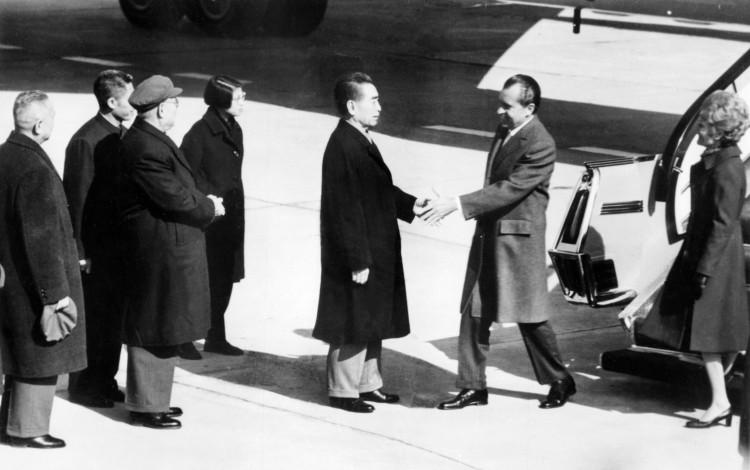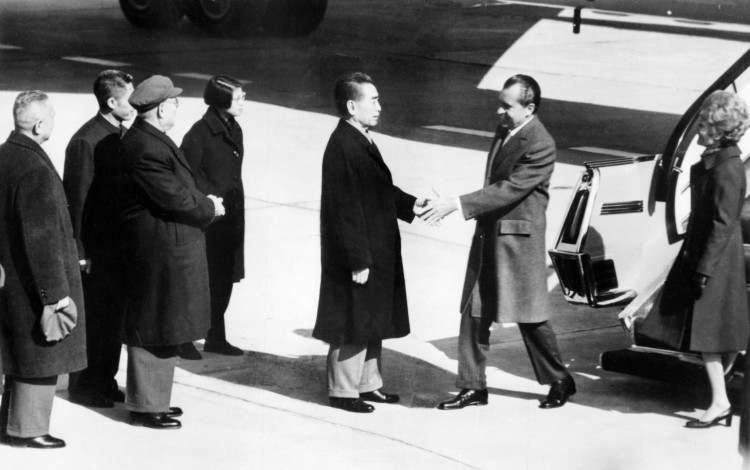Opinion
What Went Wrong With US China Policy
The United States has grown ever weaker in promoting human rights and democracy in China, while the PRC has grown more assertive in the international arena.

Chinese Premier Zhou Enlai welcomes U.S. President Richard Nixon during his official visit to Beijing, China, on Feb. 21, 1972. Richard Nixon sought to play the China card as a way to gain advantage in the contest with the Soviet Union. AFP/Getty Images
|Updated:


